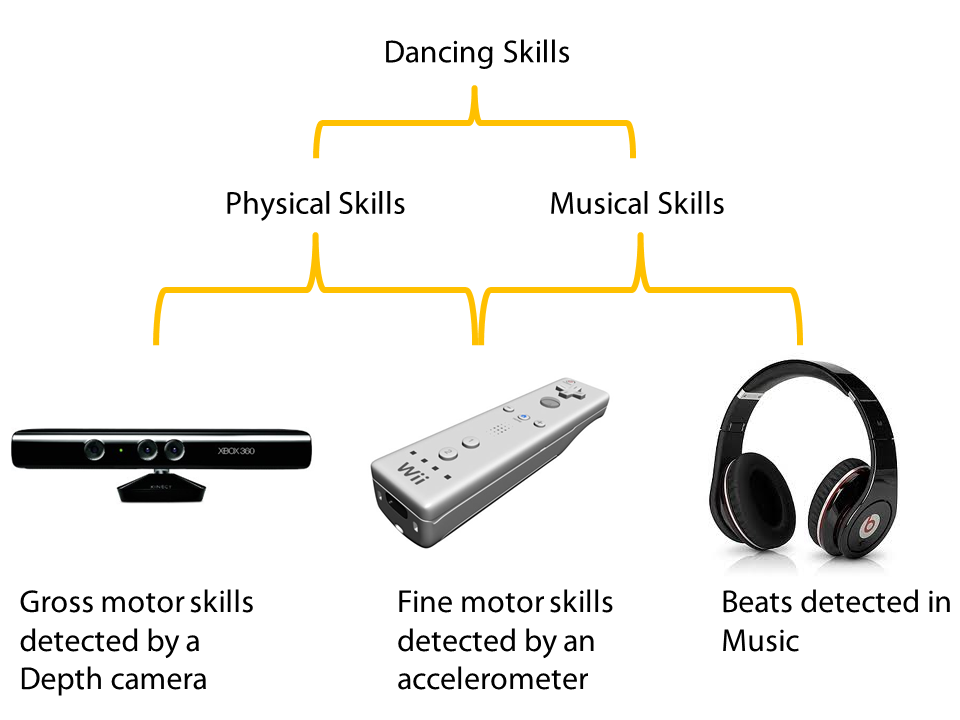Researchers (
Maddison et al.) from New Zealand analyzed data from a randomized controlled trial of an active videogame intervention on body composition, looking at mediating effects of secondary outcomes. The trial found that playing the videogame reduced participants’ body mass index at 24 weeks, but, there was no effect on physical activity (physical activity levels were the same) or food snacking.
The researchers concluded that “playing exergames can have a positive effect on body composition in overweight or obese children and this effect is most likely mediated through improved aerobic fitness.” They also indicated additional research about this type of intervention and mediators, such as preferences for physical activity or changes in sedentary behavior, is needed.
Maddison R, Ni Mhurchu C, Jull A, Prapavessis H, Foley LS, & Jiang Y (2012). Active video games: the mediating effect of aerobic fitness on body composition. The International Journal of Behavioral Nutrition and Physical Activity, 9 (1) PMID: 22554052
 Participants
Participants
322 overweight and obese children aged 10–14 years.
Exergames Played
EyeToy Play3, EyeToy Kinetic, EyeToy Sport, and Dance Factory
Results
Only aerobic fitness at 24 weeks met the conditions for mediation, and was a significant mediator of BMI.
Exergaming Points 2 Ponder (P2P)
- If there was no difference in physical activity, why was there a difference in VO2 change? How do you explain the difference?
- If the accelerometer epoch was not sensitive enough to capture the data effectively for time spent exergaming, how can you be sure that the exergames mediated the change in body composition via increased fitness. In other words, how do you know that the participants got fitter from playing exergames?
- Were they given a prescription to play a certain number of times, intensity, difficulty, with or without friends/family?
- Should fitness levels be an accurate proxy measure when using similar accelerometers for exergaming studies?
- What would you have done differently?
Click here to explore more of ExerGame Lab's archived posts involving research studies.
Other paper published on same data:
Maddison, R., Foley, L., Ni Mhurchu, C., Jiang, Y., Jull, A., Prapavessis, H., Hohepa, M., & Rodgers, A. (2011). Effects of active video games on body composition: a randomized controlled trial American Journal of Clinical Nutrition, 94 (1), 156-163 DOI: 10.3945/ajcn.110.009142
The 8th Annual Games for Health Conference in Boston, MA at the Hyatt Harboside Hotel is June 12-14 -- under one month away!
Register today at: http://www.regonline.com/gbew2012
Additional Games for Health Keynotes!
Constance Steinkuehler Squire, senior policy analyst for the White House Office of Science and Technology Policy, will discuss the opportunities for videogames to address national challenges, including those in health, health care, and biotechnology.
Bill Crounse, MD, senior director of worldwide health for Microsoft, will present “Connecting & Kinecting Health and Health Care,” which will explore how Microsoft and its partners are merging its information and game technologies to create global solutions for personal health and professional health care.
Jane McGonigal, New York Times bestselling author and co-founder of SuperBetter Labs, will highlight the design and release of SuperBetter, a game-based social application designed to help people boost personal resilience and lead healthier, longer, and more positive lives.
Jay Walker, curator and chairman of TEDMED, a global community of people who passionately believe that the future of health and medicine is here, will provide the end-of-conference special guest keynote: “Gaming the System”.
About Games for Health
Founded in 2004, the Games for Health Project supports the development of the health games community, champions efforts to mainstream health games, and brings together researchers, medical professionals, and game developers to share information about the impact games and game technologies can have on health, health care, and policy. The Pioneer Portfolio of the Robert Wood Johnson Foundation is a major supporter of both the Games for Health Project and its annual Games for Health Conference.
About the Robert Wood Johnson Foundation and its Pioneer Portfolio
The Robert Wood Johnson Foundation focuses on the pressing health and health care issues facing the United States. As the nation’s largest philanthropy devoted exclusively to improving the health and health care of all Americans, the Foundation works with a diverse group of organizations and individuals to identify solutions and achieve comprehensive, meaningful and timely change. Projects in the Pioneer Portfolio are future-oriented and look beyond conventional thinking to explore solutions at the cutting edge of health and healthcare. For more information, visit www.rwjf.org/pioneer.
To see all the latest scheduled sessions please visit:
Our Schedule Block Page
You can also follow us  on Twitter.
on Twitter.
Increased understanding of why and how physical activity impacts on health outcomes is needed to increase the effectiveness of physical activity interventions. A recent randomized controlled trial of an active video game (PlayStation EyeToyTM) intervention showed a statistically significant treatment effect on the primary outcome, change from baseline in body mass index (BMI), which favored the intervention group at 24 weeks. In this short paper we evaluate the mediating effects of the secondary outcomes.
Objective
To identify mediators of the effect of an active video games intervention on body composition.
Methods
Data from a two-arm parallel randomized controlled trial of an active video game intervention (n = 322) were analyzed. The primary outcome was change from baseline in BMI. A priori secondary outcomes were considered as potential mediators of the intervention on BMI, including aerobic fitness (VO2Max), time spent in moderate-to-vigorous physical activity (MVPA), and food snacking at 24 weeks.
Results
Only aerobic fitness at 24 weeks met the conditions for mediation, and was a significant mediator of BMI.
Conclusion
Playing active video games can have a positive effect on body composition in overweight or obese children and this effect is most likely mediated through improved aerobic fitness. Future trials should examine other potential mediators related to this type of intervention. Trial registration Australian New Zealand Clinical Trials Registry Website: http://www.anzctr.org.au Study ID number: ACTRN12607000632493
 on Twitter.
on Twitter. 














